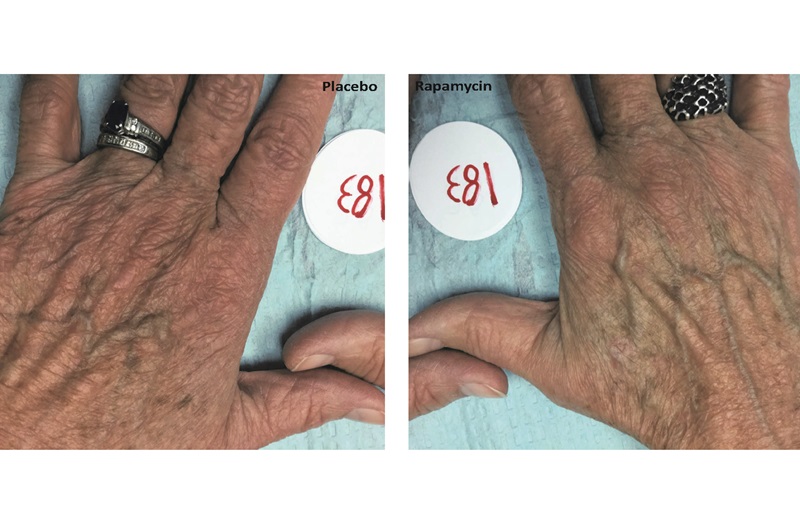
A drug approved to prevent organ rejection in transplants may help slow skin aging, according to a small new study from Drexel University, Philadelphia.
The researchers followed 13 participants age 40 and older who applied rapamycin cream every one to two days to one hand and a placebo to the other for eight months. Regular follow-ups included a blood test and a skin biopsy at six or eight months.
After eight months, the majority of the hands treated with rapamycin showed increases in collagen protein, which helps keep skin taut. The treated hands also had significantly lower levels of P16, a protein associated with skin wrinkles. High levels of p16 are also linked to dermal atrophy, a common condition in seniors that causes skin to become fragile.
None of the rapamycin was absorbed into the participants’ bloodstream, reported senior study author Christian Sell, Ph.D. “As researchers continue to seek out the elusive ‘fountain of youth’ and ways to live longer, we’re seeing growing potential for use of this drug,” he said.
Rapamycin was first discovered in the 1970s in bacteria found in the soil of Easter Island. It is also used to treat a rare lung disease and as an anti-cancer drug.
Full findings appear in Geroscience.




